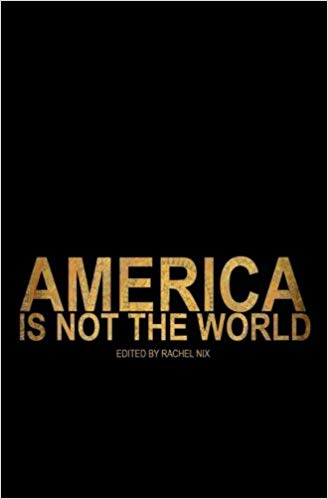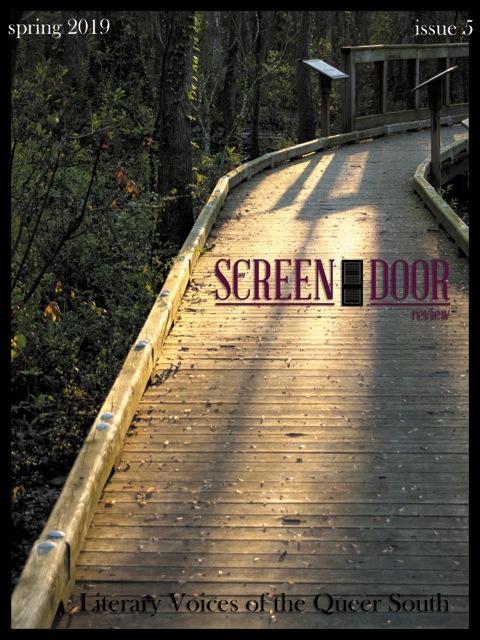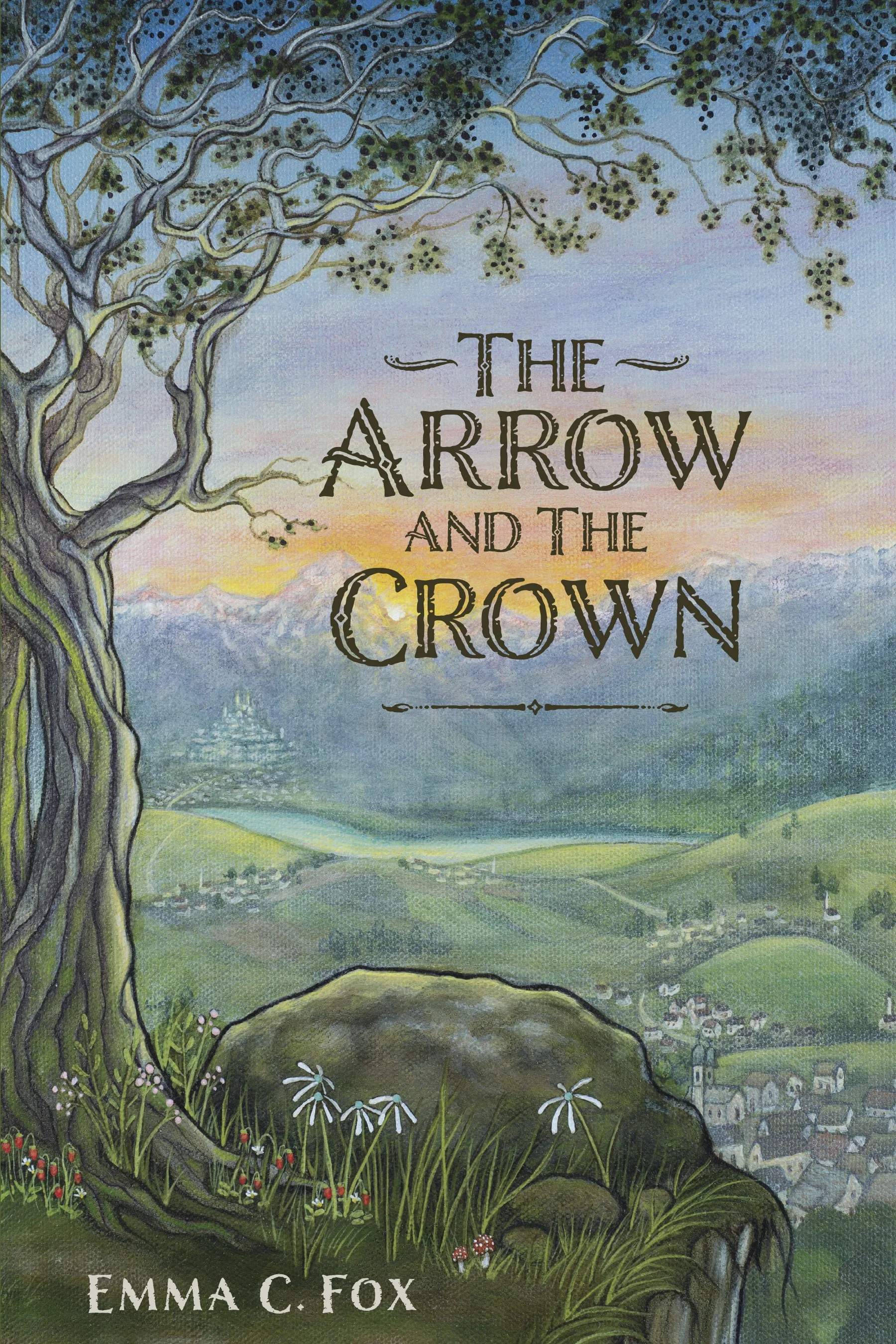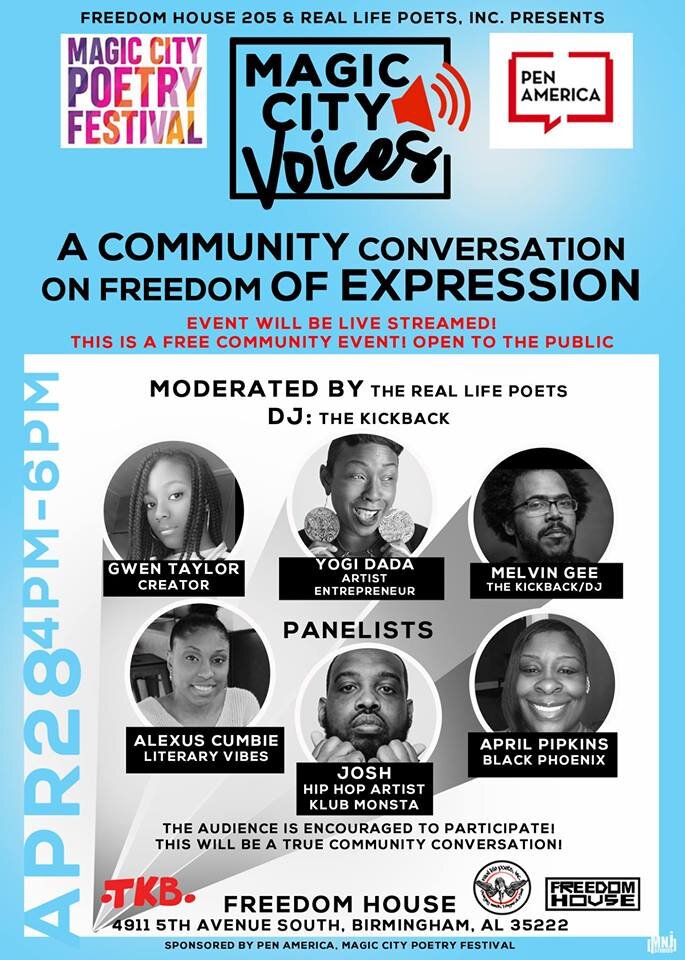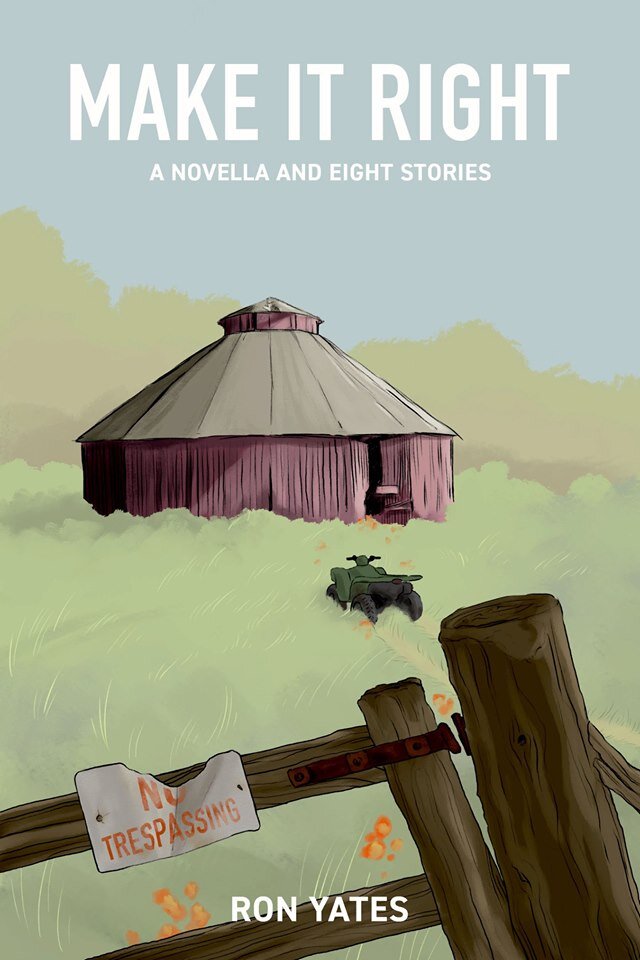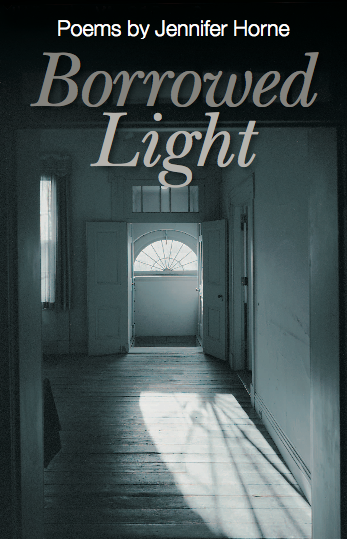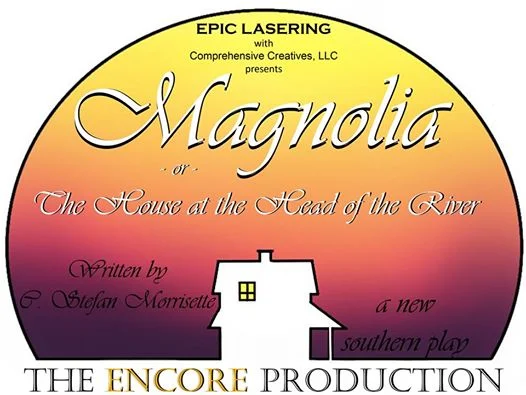ALINA: You live in a small Alabama town. Tell us what you love about this town--its special secrets or swimming holes--and then tell us what challenges you've experienced as a writer living in the rural south.
RACHEL: I live in Double Springs and always have. It’s a strange thing, I guess, to cling to a place known for beliefs so unlike my own but there’s more to my town—or county—than history gives either credit for.
I’m pretty introverted and despise places that have more parking lots than trees. Here, I’m about fifteen minutes from a national forest and the only sounds I’m kept awake by are my dogs’ antics. I don’t have to check the air quality before playing tag with my nephew. With the exception of tractors slowing things up, traffic is non-existent. People are mostly kind and most any stranger would stop and help change a flat.
Those kindnesses are sometimes warped by way of politics and learned hatred. Challenges are always present and do indeed wager a firm fight against comforts. As a writer, and simply as a progressive-minded individual, I’m at least an hour’s drive from any communities I find much relation to in terms of my interests or beliefs. In my own area, I’m often cursed at for the political stickers on my car. This is a town with two traffic lights and roughly a thousand residents. A lot of people here are nervous of bigger cities or find them offensive; in juxtaposition to such notions held here, I’ve never felt unsafe in a place like Birmingham, for example, especially for something as simple as showing my alliances via a bumper sticker. That’s a small example of the larger predicament turned motivation: promoting my own ideas or experiences through writing used to be a wildly frightening thing for me; meeting so many similar people in towns or states outside of my own has given me the bravery to share my thinking, even if my thoughts appear to frown upon the more common perspectives held locally.
Essentially: I love my home but I’d love to see it love better.
ALINA: No truer words of love could be spoken. Love imples a commitment to stick around and improve. On that note, You edited a wonderful anthology and I was hoping you'd share with us how this anthology came together. What did you like most about editing an anthology?
RACHEL: Thank you and I’m thrilled you enjoyed it. Years ago I was an associate editor for Pankhearst, a writers collective which released several collections before its eventual disbandment. The idea for America Is Not the World was dreamed up by founding editor, Evangeline Jennings, and poetry editor, Kate Garrett. They passed the concept on to me, referencing my intense love for culture while occupying the most conservative [and possibly the whitest] district in the country.
In editing an anthology that spoke both beautifully and at times aggressively against absurd bigotries, my faith grew in my own country. This was my first effort in editing an anthology and I was overrun with hundreds of brave submissions from all over the world, all proving people are ready to fight and forgive—each in the right measure. The whole process was a healing one. Then getting to pass along a book that offered proof of universal similarities? Getting responses from those who typically didn’t care for reading, saying they found themselves curious about others because of the book? I’ll be forever proud of getting to assist in that.
ALINA: If you could edit an anthology devoted to southern writing, what would it be titled? What would be its focus? What would it include?
RACHEL: Excellent question and now I’m plotting how to get in the editing seat for such an anthology. I’d have to think on a title but I believe I’d want it to reflect rural life and the contrast within: run-ins with the righteous or the kindness of preachers who won’t charge for delivering your kin to the grave; growing up with well water, the pure taste of it and the root canals we never knew we’d need from it; the effort to provide in a slanted economy or the privilege of having neighbors who grow too many vegetables; the lack of hotels or the way quiet towns fills their streets during strawberry festivals.
ALINA: For me, the South is best tasted by backroads. I get the feeling you have a similar appreciation for the unpopular routes. What fascinates you most about backroads? Do you have a favorite Alabama backroad?
RACHEL: Time fades into the background on backroads. We don’t take those roads to conserve time; we do it to avoid time altogether. Reality is an exhausting experiment but when riding aimlessly with nothing to consider but what music to listen to, breathing is a much simpler act. This will sound a bit odd but my favorite backroad is the one connecting to the graveyard my grandmother was buried in. My sister and I were tired of crying and speaking to people the day of her funeral; when services were over, we took the first road away from the church and proceeded to get lost after turning too many times. We drove long enough for time to disappear and gave ourselves a while to exist in a space our grandmother hadn’t disappeared from. I still take those roads for the same reasons eight years later.
ALINA: As a poet, your voice is lyrical, rooted in place, and yet somehow, also, watching the narrator from a corner. I love reading your poems. Can you share a few recent publications with us and tell us what prompted them or how they came about?
RACHEL: That’s such a kind thing to say and I appreciate it more than I can elaborate.
“Instead” is from The Furious Gazelle’s Spring Writing Contest. It’s a pretty straightforward delivery, showing the dark and light I grew up in—maybe the way finding my own darkness was a form of light. For those who grew up in emotionally abusive situations, spectrum thought is a common theme.
“Blurring” is one I’m so pleased found a home at Pidgeonholes. It was in a weird way for my uncle Earl, who struggled with alcoholism. Despite his problems he was always the one on that side of the family who showed me kindness or valued me as an individual. He and I had a lot of things in common, at least in the notion of getting black-sheeped for failing to align with family themes we didn’t feel kin to. It also pays homage to my mother’s earliest teaching: acknowledgment. Without an awareness of someone’s struggles we tend to misname their motivations. My uncle wasn’t a bad man anymore than those who hurt him and then condemned him for trying to survive it.
“Yellow” is one of those poems that tumbled out on its own in reaction to reality and thankfully found a home at Anti-Heroin Chic. I could ramble on and on about the failures of our government on immigration but above all and simply put: children ought not ever be caged. My nephew, who was three years old at the time, wouldn’t know how to process such cruelty if he were aware of it. I find solace in his good heart, the way he’s always had sweet interactions with playground kids—when they didn’t speak English or before he spoke it clearly.
ALINA: As an editor of three literary magazines, can you tell us a little bit about each and poets you've discovered in your role as an editor?
RACHEL: I’m the poetry editor at cahoodaloodaling, which is best described as a collaborative publication. Our issues are shaped by an eclectic staff, Raquel Thorne swiveling in the front chair, and a revolving guest editor. We also have varying calls for submissions, based on either a theme or a style, and we love to see how our collaborators interpret them. As such, our issues are ever-changing and our style ever-evolving.
At Hobo Camp Review, I serve as an associate editor alongside James H. Ducan, who does all the heavy lifting. As he decribes it, the camp is a gathering place for the road-weary storyteller. We invite writers to sit a spell by the fire and tell us where they've been. We're interested in travel stories, something with a dark twist, and something that'll make us laugh. Pretty much anything that sounds great read aloud beneath a railroad bridge at night.
Screen Door Review is a literary magazine authored by individuals belonging to the southern queer community of the United States. The purpose of the magazine, as worded by managing editor, Alesha Dawson, is to provide a platform of expression to those whose identities—at least in part—derive from the complicated relationship between queer person and place. Specifically, queer person and the South. Through publication, we aim to not only express, but also validate and give value to these voices, which are oftentimes overlooked, undermined, condemned, or silenced.
In working with these journals, I’ve certainly discovered some of my favorite poets. Early on at cahoodaloodaling, we published the ever brilliant Kate Garrett and now I don’t even know how many of her books I have on my shelves; she writes on the wildest topics yet makes everything seem less distant and more capable of understanding. Shahe Mankerian, who was published in the America Is Not the World anthology, cahoodaloodaling, and Hobo Camp Review, is another poet who I can’t rave enough about – find anything he’s written and prepare to be enamored or gutted, maybe at the same time. Through Screen Door Review I discovered Raye Hendrix, who is also an Alabama-bred poet and bravely spans the spectrum on topics and voice.
ALINA: Do you have any submissions calls you'd like to share?
RACHEL: Both Hobo Camp Review and Screen Door Review are wide open for general submissions. We’ll soon peek out from a much needed hiatus to properly announce the In Cahoots contest at cahoodaloodaling, as well, which will offer a $150 prize for the winning collaborative work!
ALINA: What is your favorite place in Alabama? Tell me about it like it we have good coffee and time.
RACHEL: I love the Shoals, a collective term for the cities of Florence, Muscle Shoals, Sheffield, and Tuscumbia. The cities all sort of collide with each other in north Alabama and little is thought of borders. The greatest songs in the country were recorded there while the best bands are still learning to play. Progressive ideas are elbowing their ways into popular acceptance via groups like Equality Shoals and Project Say Something. History is at home there from the work of people like Helen Keller, W.C. Handy, and countless others.
The myth of the Tennessee River’s singing has navigated its way to a full-on way of life by the locals or anyone who passes through. Artistry, or maybe motivation, is in the water. It’d honestly take a fool to dismiss the myth when the best parts of the cities are hollering distance from the river.
ALINA: Are you working on any current projects? If so, what?
RACHEL: I’ve been tinkering with a chapbook largely to do with being brought up in the South and making sense of what we’re born into—wondering toward the balm time rubs on rough-edged memories.
ALINA: What poetry craft articles or essays have helped you fine-tune your craft? Why? What did you learn from them?
RACHEL: Reading, in general, is the finest of tuners. Craft articles tend to lose me, though I understand and appreciate their intent. I’ve never been a typical learner, though I did learn to untangle my thoughts and simplify them through Mary Oliver’s Upstream, a collection of essays. Time is a thing I study, possibly too much. My writing exists largely within specific moments but through reading Oliver’s essays, I’ve learned to see moments as instructional notes rather than things to get hung up on too much. Workshopping is also the best of tools. Finding individuals who’ll call me out for my incessant adverbs or remind me of the point I’m trying to make—that’s all pretty priceless.
ALINA: Yes, I love Upstream…. it’s such a riffle-maker. And, finally, five Alabama-related metaphors or similes for the color red. Just because it’s that time of year again.
RACHEL: I want nail polish as red as the clay behind Maw-Maw’s house.
My neighbor looked piss-ant mad when the law showed up.
I heard her husband run off with a woman who had strawberry lips.
His face looked like a southern woman’s stove eye on Sunday.
Momma’s face was on fire when I got in so late.
We’re so proud to welcome this beloved Alabama writer to AWC. Rachel Nix is an editor for cahoodaloodaling, Hobo Camp Review and Screen Door Review. Her own work has appeared in Barren, Occulum, and Pidgeonholes. She resides in Northwest Alabama, where pine trees outnumber people rather nicely. You can learn more about Rachel Nix’s writing and freelance editing work at her website, Chasing the Grey or by following her on twitter.




